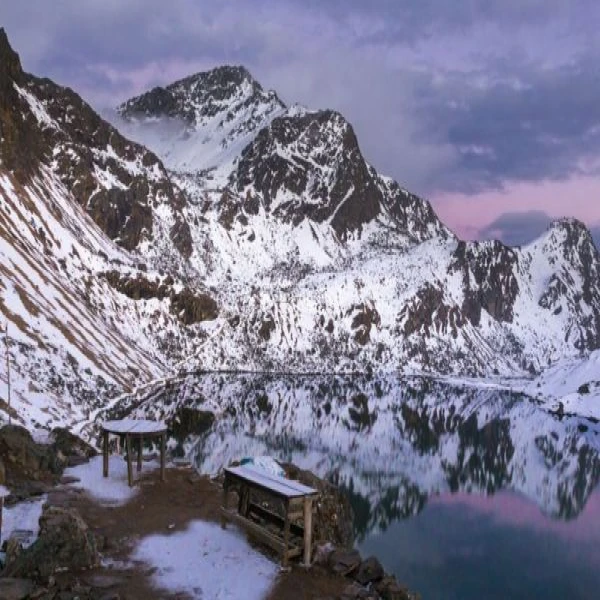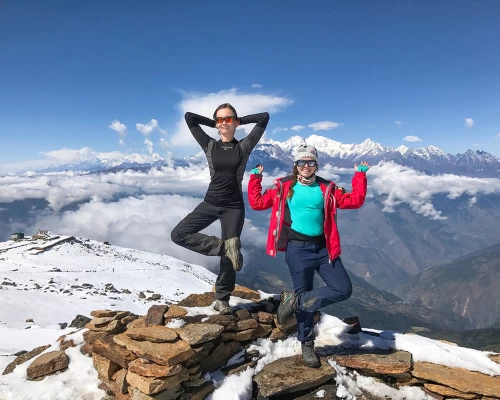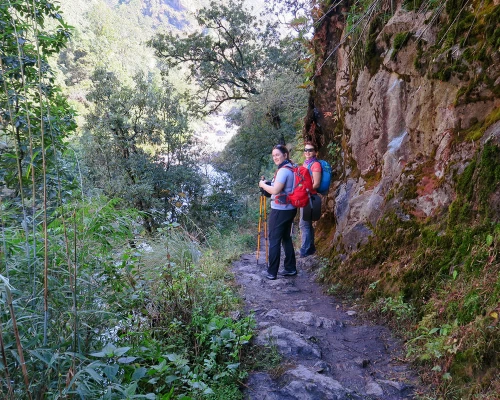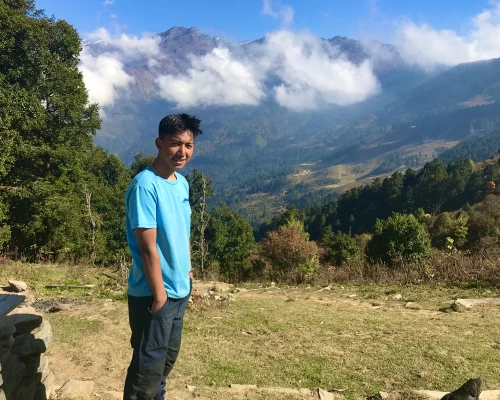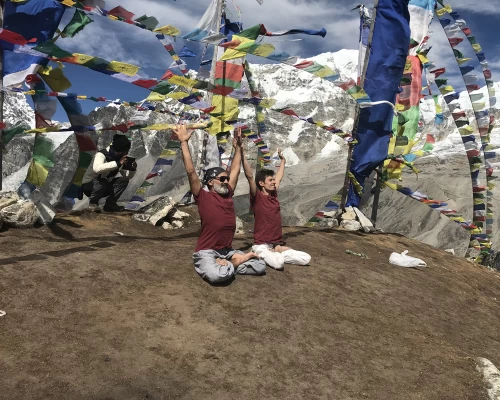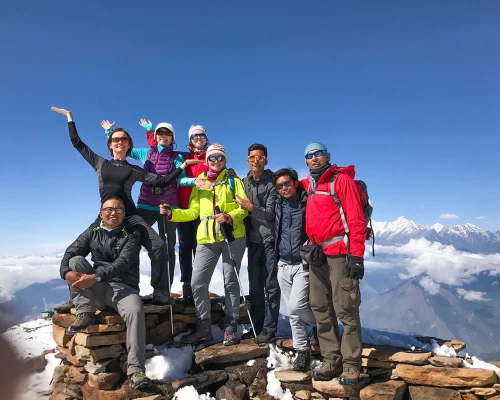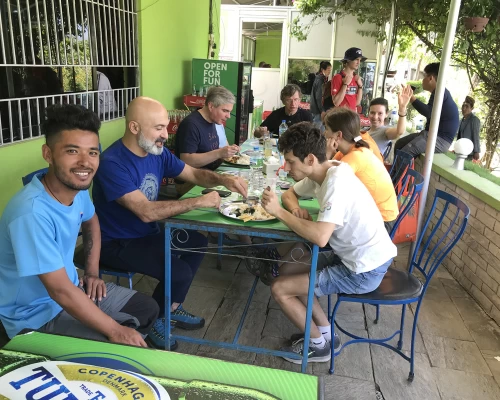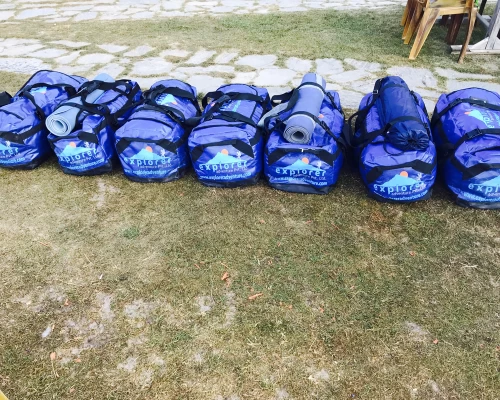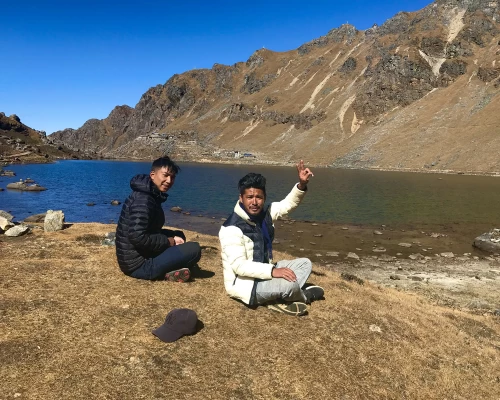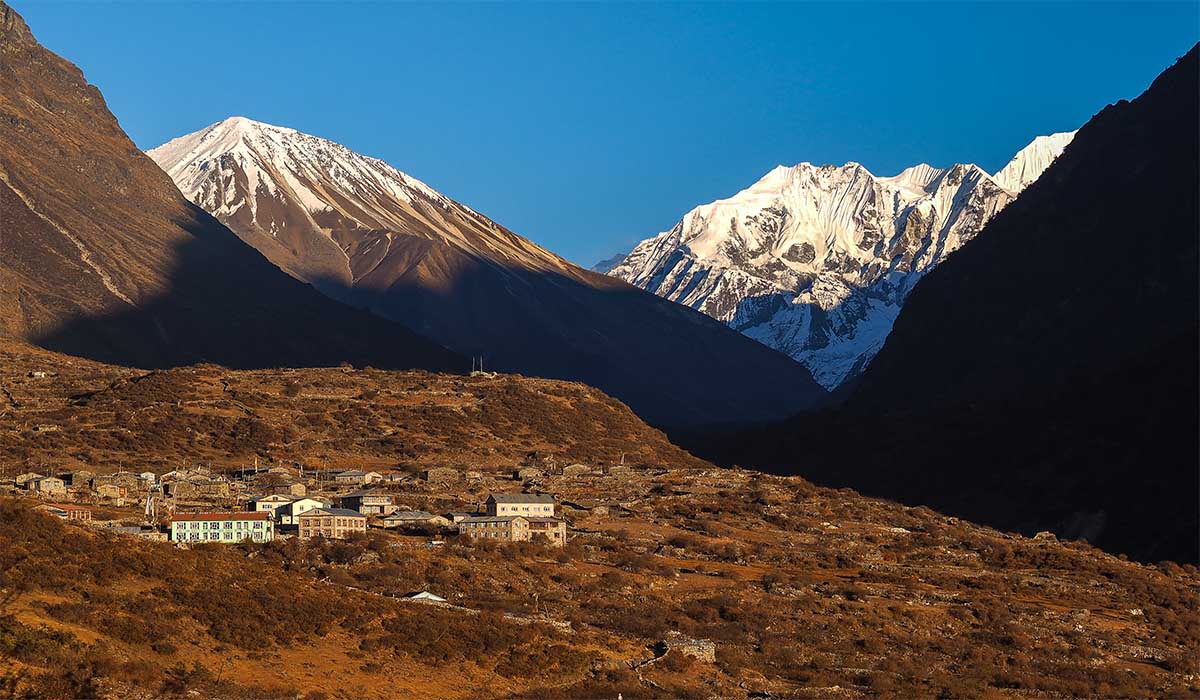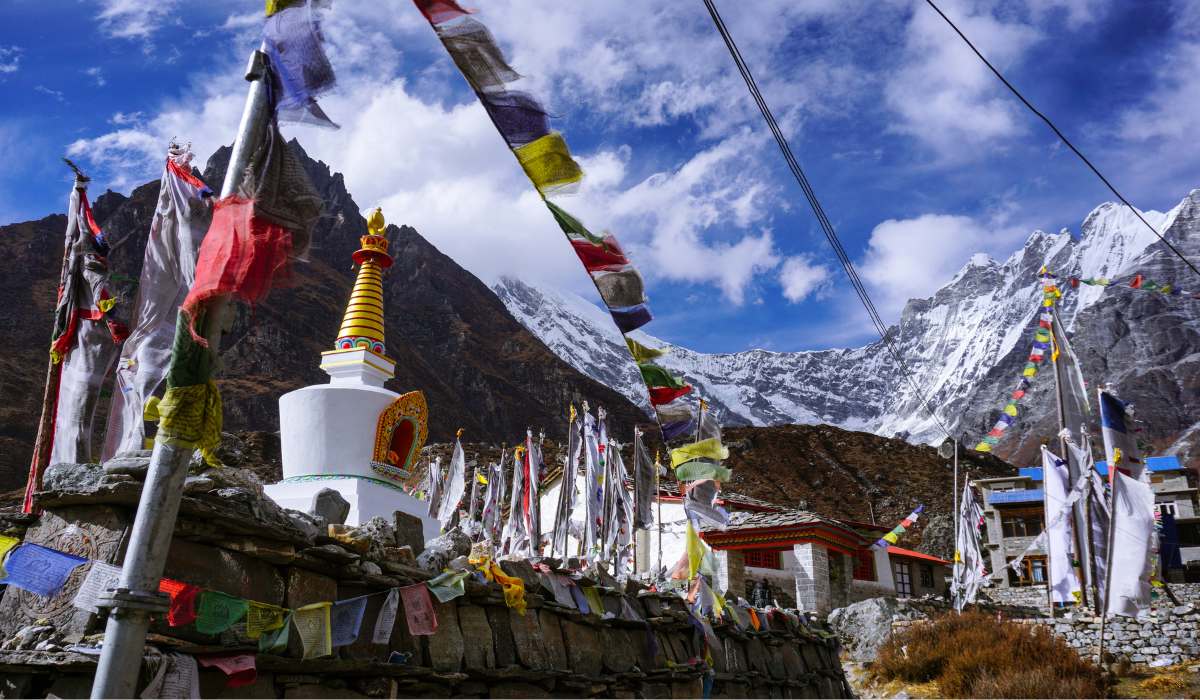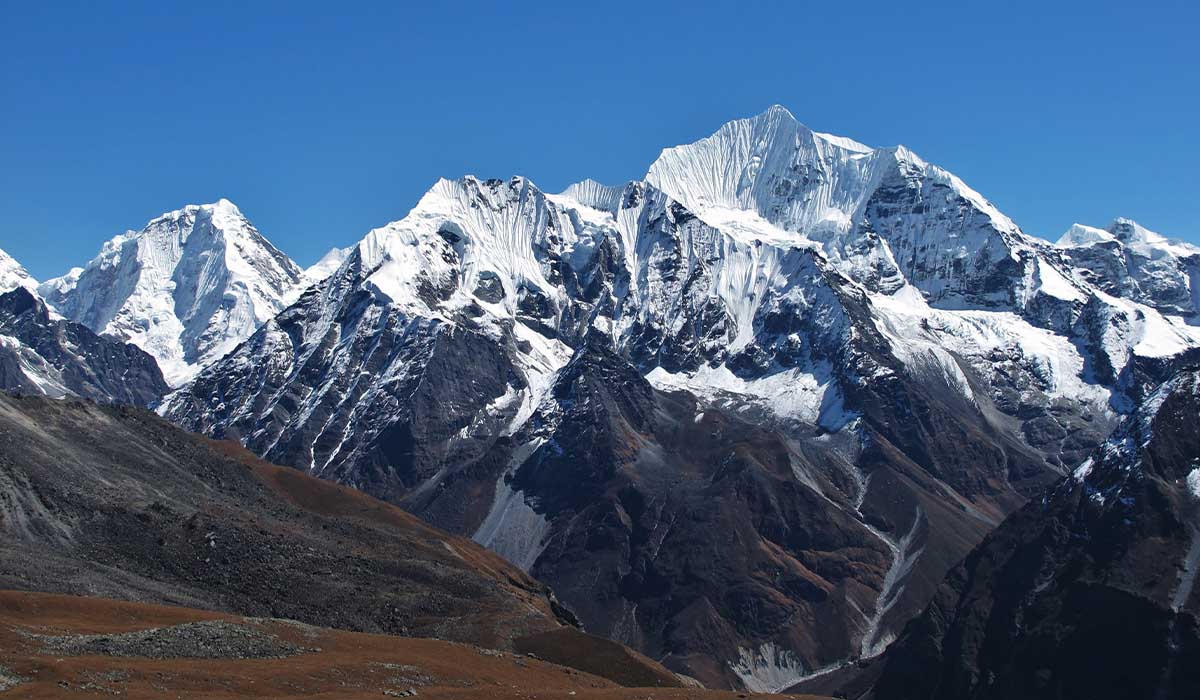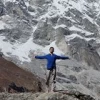The Langtang Gosainkunda Trek is one of those rare Himalayan experiences that is both soulful and adventurous. It is a glacial valley of high peaks, frozen alpine lakes, vibrant forests of rhododendrons, and friendly mountain people.
This trek is far less busy when compared to the routes of Everest or Annapurna and provides a great sense of tranquillity and authenticity. It thus allows you to peek into the wonders of nature and the depths of culture in a more profound and intimate way.
Every day on this route is a different experience with the wonderful beauty of the area, the divine silence of Gosainkunda Lake, the wilderness highland paths and the memorable meetings of the Tamang and Sherpa communities.
If you are seeking a trek that is the perfect mixture of cultural exposure, beautiful nature, moderate adventure and emotional richness, the Langtang and Gosaikunda trek may be just the one.

Whether you are a newbie hiker desiring your first Himalayan adventure or an experienced traveler wanting a trail of diversity and adventurous rewards, this route presents everything. So, before you strap on your boots and head to the mountains here is a comprehensive guide conveniently designed to ensure that you trek intelligently and with confidence.
Above all, you will be able to enjoy one of the most rewarding and meaningful Himalayan adventures in Nepal.
Langtang Gosainkunda Trek Cost
The Langtang and Gosaikunda Trek with Explorer Adventure costs US $770 per person, offering one of the best-value packages for a high-Himalayan trek. The given price covers necessary preparations for the entire journey from airport transfers, Kathmandu hotel, transport to and from the trail, permits, a licensed guide, a porter for 2 trekkers and a daily setup for the trek. Whereas, personal expenses like meals, drinks, insurance, and visa fees will be your responsibility.
The total budget is subject to change depending on a number of factors:
- Group size (larger groups tend to have a lower per-person cost)
- Season (high season might lead to a higher demand for lodging and transport)
- Transport choice (private jeep or tourist bus)
- Type of equipment needed
- Personal habits regarding food, hot showers, Wi-Fi, charging and bottled water along the trail.
Usually, you should plan to add around $20 to $30 daily for food and the most basic services, plus a separate amount for tips and personal purchases. This hike is still one of the cheapest that offer such a clear and predictable cost structure while providing the flexibility of comfort and personal choice.
Essential Permits for the Langtang Gosainkunda Trek
A permit is essential for the Langtang Gosaikunda Trek to access the region legally and contribute to its conservation. As the trail passes through the Langtang National Park, you will require an entry permit for it.
This permit not only protects but also promotes birds, animals and vegetation of the park as well as the initiatives of the local community and the park management. It is necessary to have the permit with you at all times during the trek, as it will be checked at different locations along the path.
Usually, the Langtang National Park entry permit (USD 21) is included in the organized trekking packages that we offer. So, just focus on the experience and do not think about the administration. Obtaining the permit will not be a difficult task for you because we are responsible for it. You will have free and legal access to the area of the Himalayan highland and be able to discover it without any paperwork difficulties.
Thrilling Lauribina Pass
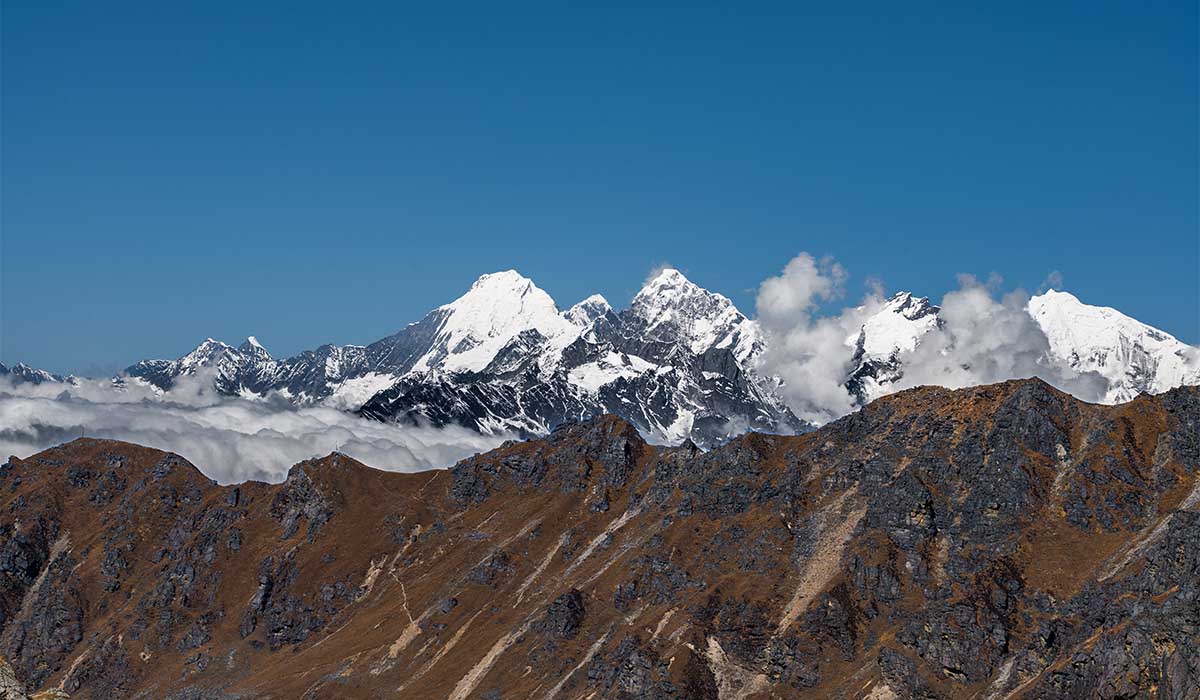
The Lauribina Pass at an altitude of 4,610 meters is one of the distinctive characteristics of the Langtang Gosaikunda Trek. This high Himalayan pass gives you a real adventure feeling with complex climbs, rough ground and spectacular vistas of the nearby mountains and the deep valleys.
The ascent to this pass needs good acclimatization as the steep trails and high altitude can be very tough to bear. The magnificent views of snow laden mountains, valleys with glaciers and the shining lakes of Gosaikunda below make the place a photographer's paradise.
The way down from Lauribina La is easy and goes in the direction of the holy lakes. It is a combination of thrill, nature's beauty and spiritual peace. For a large number of people, crossing this pass is the moment that defines the trek delivering a combination of adventure, challenge and view of the Himalayas that is not to be missed.
Langtang and Gosainkunda Trek Distance and Duration

The Langtang Gosaikunda Trek usually covers a distance that ranges from around 120 to 135 kilometers (round trip). It varies by the route taken and additional trails or side trips you make. Our well organized Langtang Gosaikunda trekking package is of 15 days that includes trekking, acclimatization and rest days to make sure that the journey is safe and pleasant.
The journey starts with a scenic drive from Kathmandu to Syabrubesi, which is the access point to the trekking area. You will gradually ascend to the valley through the vibrant forests, Tamang villages, and highland pasture to Langtang village and Kyanjin Gompa. Then you will go further to the divine lakes of Gosaikunda over the Lauribina Pass.
After enjoying the lakes and the stunning alpine scenery, you will descend to Dhunche which joins you with the Helambu route. You will pass through scenic landscapes of terraced fields and thick pine and rhododendron forests. Moreover, the local culture of Helambu is revealed to you by this section as you take a gentle descent towards the lower valleys. The trip ends with driving from Dhunche to Kathmandu with picturesque views of rural villages, rivers and the rolling hills.
Usually, you will walk 5–7 hours each day, covering 8–12 kilometers depending on elevation gain, terrain, and acclimatization needs.
How to Reach the Langtang Gosainkunda Trekking Trail?
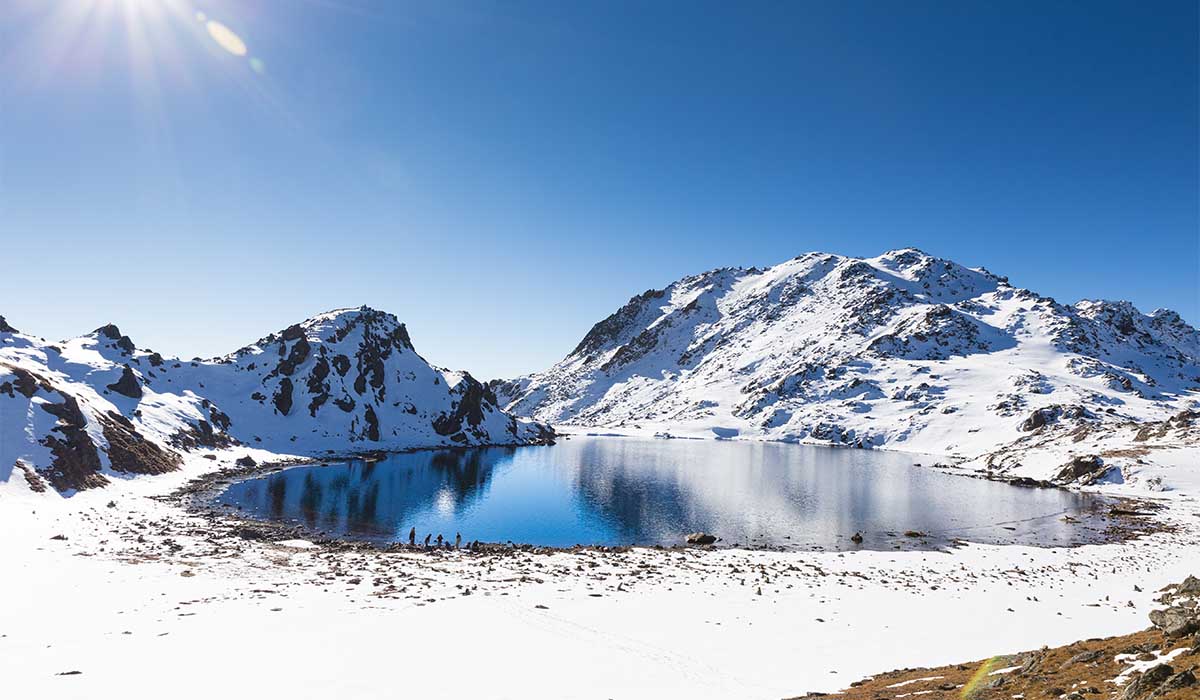
Reaching the Langtang Gosainkunda trekking trail is very simple as it is easily accessible from Kathmandu. You will travel through a beautiful landscape from the capital to Syabrubesi, the main entrance of Langtang territory. It is a scenic drive of about 6 to 8 hours.
River Trishuli, terraced farming, and small towns like Dhunche with typical rural Nepalese life are some of the wonderful views along the road. You will either travel by tourist buses or private cars and the ride is mostly smooth and comfortable except for some gravel and dusty sections near the destination.
The official start of the trek is in Syabrubesi, where the trail runs beside Langtang Khola and winds through thick forests, along riverbanks, and past traditional Tamang villages. For those trekkers coming from Pokhara or other areas of Nepal, Kathmandu is the main hub with different options to combine domestic flights, buses, or private transfers.
All in all, the road access, along with a well-signposted trailhead, makes the Langtang Gosaikunda Trek pretty much convenient to reach.
Alternative Treks in the Langtang Region

In addition to the classic Langtang Gosainkunda route, the Langtang region offers several alternative treks for different interests and fitness levels.
The Langtang Himal Panorama Trek is perfect for those hikers who long for stunning mountain views but do not want to go up to the very high altitudes. It presents very beautiful vistas of Langtang Lirung, Ganesh Himal, Yala Peak, Gangchenpo, Langsisha Ri and other peaks as you pass through traditional villages and green forests.
On the other hand, the Tamang Heritage Trail is centered around cultural involvement which allows you to visit the old Tamang settlements, gompas, and rustic lifestyles. This lets you have a very good comprehension of the area's culture, religion and spiritual heritage.
In the same way, the Helambu Trek is a great option for those who prefer a less difficult and shorter mountain trek taking them through a scenic landscape of terraced fields and dense woods. Along the way, you will be able to delight in the beautiful Himalayan views and also get a glimpse of the local traditional mountain village life.
Every one of these different hikes offers a beautiful mix of nature, culture and excitement. They allow you to choose the best fitting way to experience the Langtang area according to your interests and skills.
Want a Customized Trek With Explorer Adventure?
If you’re looking for a trekking experience tailored entirely to your preferences, Explorer Adventure offers fully customized treks in the Langtang region and across Nepal.
You are free to modify the duration, pace or daily distance of your trek. Simply share your priorities with us, be it scenery, culture or even include things like taking pictures, meditating or attending festivals as part of your activity.
Customized treks are perfect for anyone who values flexibility, comfort and deep immersion while having expert knowledge and safety of a professional team by their side. We are able to create an itinerary that is perfectly aligned with your interests and fitness level. Our staff handles all logistics like transportation, accommodation, guides, and porters so you can entirely concentrate on savoring the trip.
Prime Appeals of the Langtang and Gosainkunda Trek
- Witness the splendid panoramic views of Langtang Lirung, Ganesh Himal and other glorious summits.
- The holy (Hinduism and Buddhism) alpine lakes of Gosainkunda which are visually stunning and spiritually significant.
- Have a look at local culture and lifestyle through traditional villages, monasteries and people's daily activities.
- Walk through the different geographical areas, from the magnificent rhododendron forests and bamboo groves to the wide meadows and glacial valleys.
- Chances of encountering langurs, red pandas, and birds from different parts of the Himalayas.
- Staying in fully equipped lodges where you will find food, warmth and cultural experience.
- Spiritual experience provided by monasteries and sacred lakes.
- Rest days, side hikes, and viewpoint visits combine to make the trip adventurous and relaxing at the same time.
- Experience one of the best circuits in the area, bringing together the gorgeous nature of Langtang Valley, the holy and high-altitude Gosaikunda trail, and the culturally rich Helambu route on the way back.

.webp)
